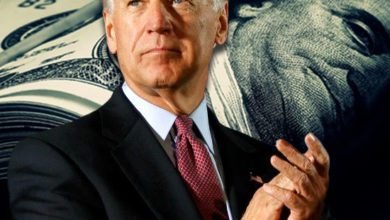Trump’s Chance at Four More Years, In Numbers
As far back as President Trump’s inauguration, there has been much speculation as to who will win the 2020 Presidential Elections. Public opinion swayed during different parts of Trump’s presidency, such as the government shutdowns, the Special Counsel Investigation, and other events. Many Republicans and conservatives claim that Trump has exposed the “Fake News Media” and the real intentions of the Democratic Party. Conversely, a number of Democrats and liberals contest that America has truly seen Trump as the crybaby he is, and that the 2020 Trump Takedown will prevail. Admittedly, the Democratic Party has done quite an impressive job in rallying 23 party members against our sitting president, yet there is a more reliable and mathematical way to test these hypotheses. After all, as boring as numbers and statistics may be, they are arguably the best way to determine an outcome.
The first mode of testing is approval ratings. These can be quite fickle, however, so it is important to put them into perspective. When it comes to overall approval ratings, polls from Gallup show that in May 2019, Donald Trump has an average approval rating of 42 percent. At the same time, in his presidency, though, Barack Obama averaged a 50 percent approval rating in May 2011, and a 49.1 percent overall in his first term. Nevertheless, CNN states that President Trump is nearer to Obama’s ratings, at 45 percent in May 2019, with a subsequent economic approval rating of 56 percent. With all those numbers, especially as close as they are, it’s still up to anyone’s guess as to who will take the elections.
Second, gross domestic product growth is also seen as an important indicator, according to public polling center Rasmussen Reports. Keeping the method of comparing the two presidents, both Obama and Trump have reached the peak of 2.9 percent annual real GDP growth rate; however, Trump’s rates are contrastable, with a third-quarter measurement of 3.4 percent real GDP growth in 2018, according to CNBC and the U.S. Department of Commerce’s Bureau of Economic Analysis. Again, these numbers are most likely too close to call.
We can then take a look at a third factor which plays a big role in politics: campaign finance. A candidate’s bank account is statistically significant, as the Center for Responsive Politics finds that 93% of House seats and 94% of Senate seats are won by the candidate with the most money; in a letter to the New York Times, Common Cause President Bob Edgar concurs, stating, “Since 2000, the average winner in contests for open House seats has outspent the average loser by at least $310,000… In races for open Senate seats, winners outspent losers, on average, in every year except 2002.” Further, 14 of the last 19 presidential elections were won by the candidate who raised the most money. So where does President Trump stand among these statistics? Looking at an article from the Washington Post in April 2019, Trump, along with his committees and the RNC has raised $490 million, $180 million more than all 23 Democratic nominees and the DNC who have raised just $310 million.
Excessive numbers can often be confusing and scary, yet they must have a definite conclusion, right? Even after all the numbers have been crunched, though, it is still unclear as to who exactly will take the Oval Office. Any sudden change in any of these factors or others can change the outcome of an election, and these indicators are not concrete examples. To quote the old mantra from AP Statistics, “Correlation does not equal causation.” Nonetheless, due to his rising approval rates, increasing economic growth, and superior campaign funds, it is a safe bet to predict that President Donald Trump will stay in the White House for four more years.




